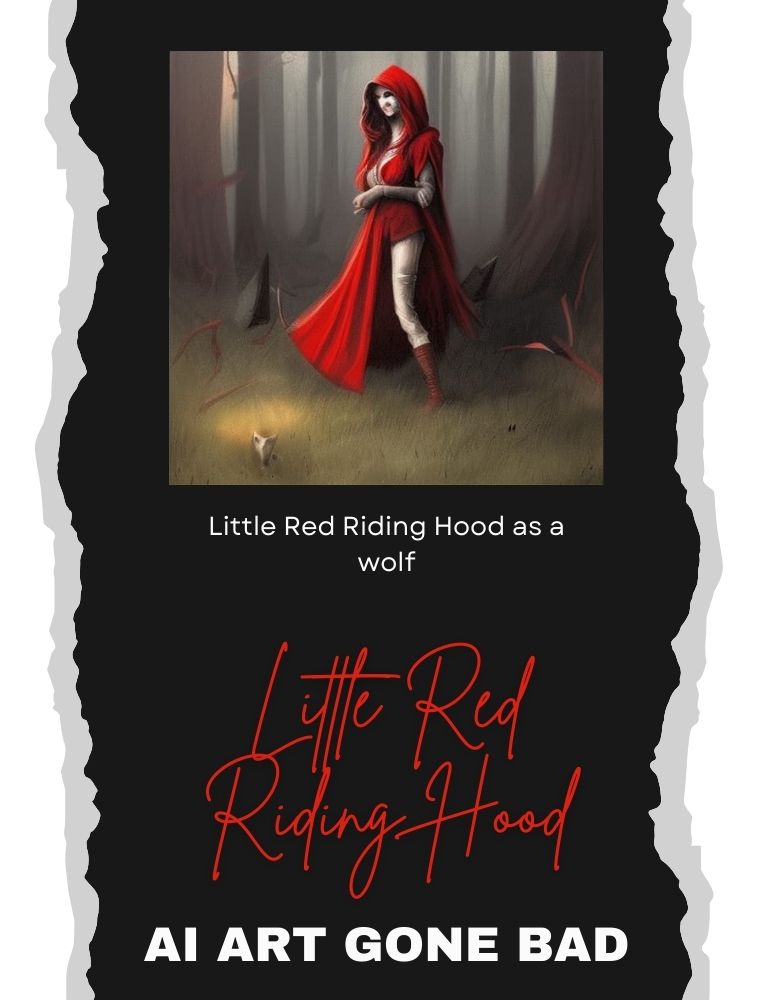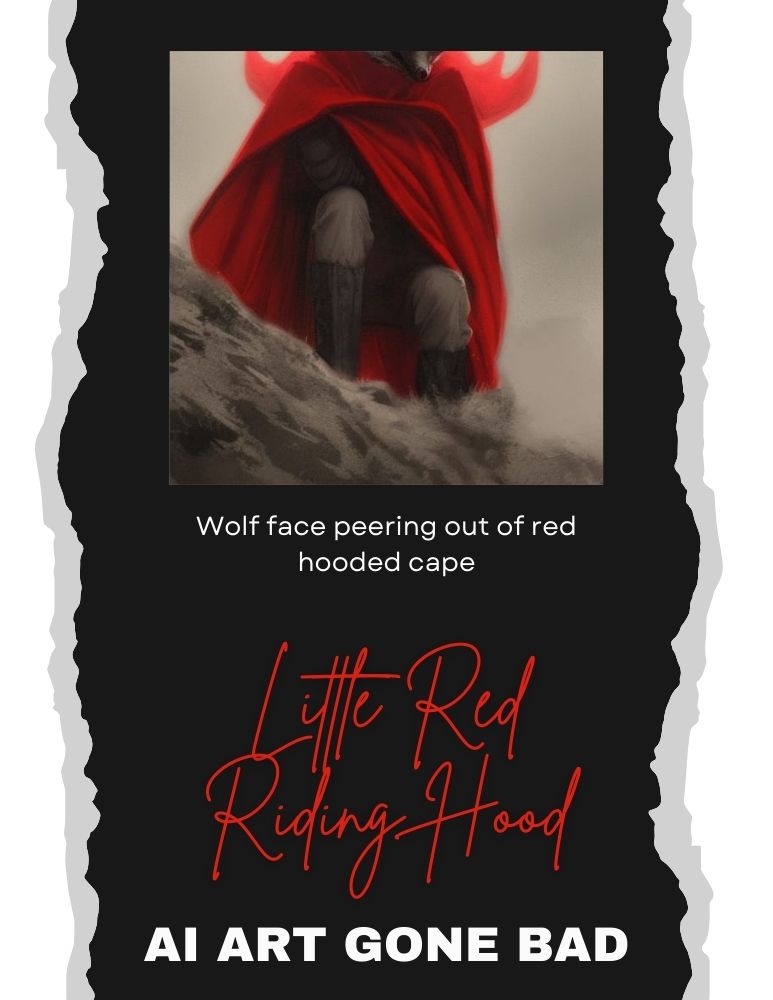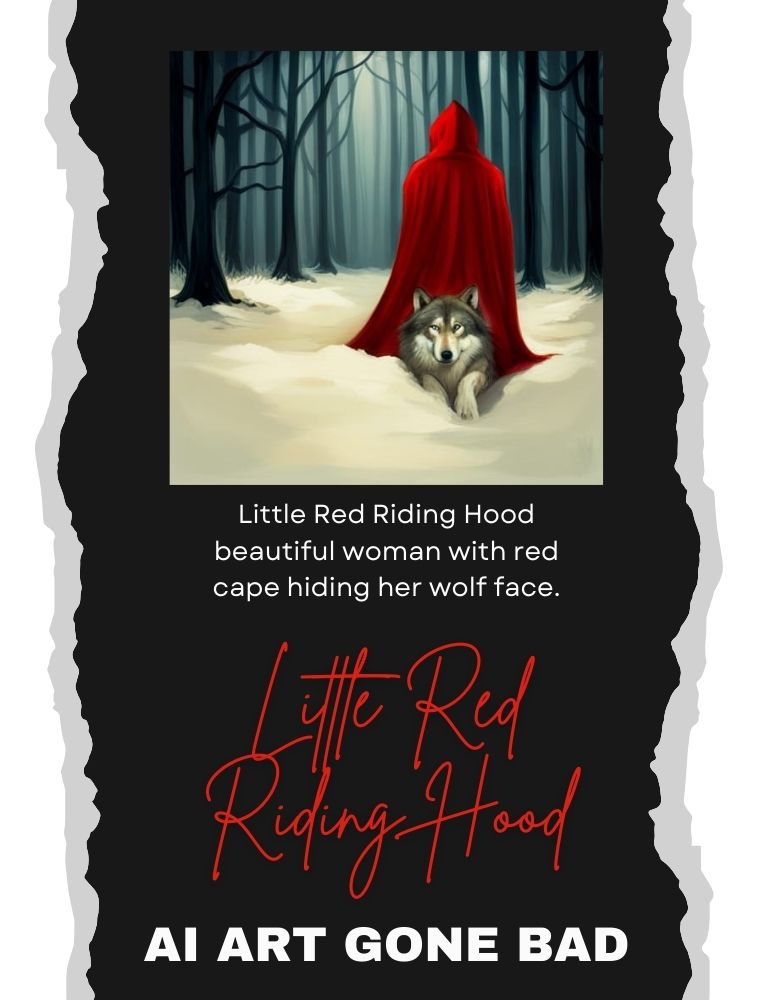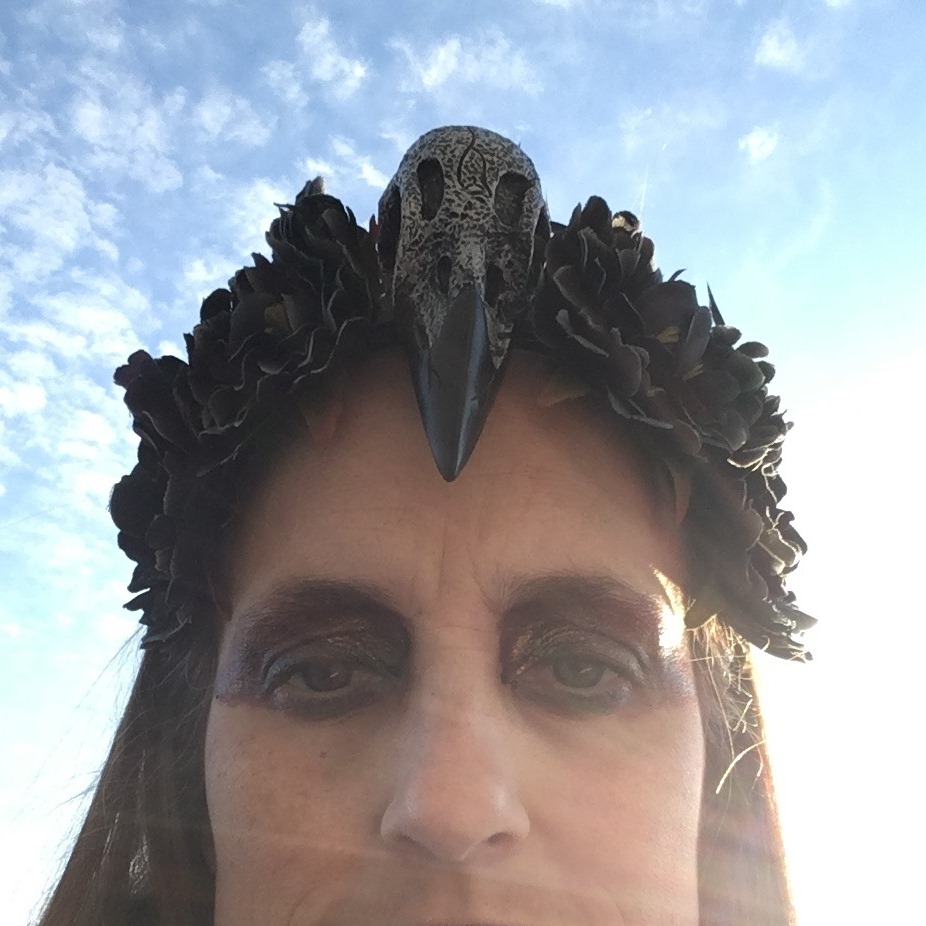
Haunted MTL Original – Opaque – Matias F. Travieso-Diaz
More Videos
Published
4 years agoon
Opaque by Matias F. Travieso-Diaz
Even in the early days, before the city expanded deeply into the suburbs, the property was an anomaly. It was a large parcel of land, about a city block long and half a block wide, weed covered and empty save for a clapboard house with white paint starting to peel away and a rusted tin roof that sat at the front of the lot, facing the highway. Everything about the house spoke of decline and old age, everything except a carefully drawn sign announcing in oversize red capitals: “SPIRITUAL ADVISOR” followed below, in slightly smaller capitals, by “PSYCHIC READINGS” and further below, under a drawing of an open hand flanked with sun, moon, and stars, there was an even smaller entreaty to “UNLOCK YOUR SOUL’S AWAKENING.”
There was plenty of space to park in a graveled rectangle behind the house, but visitors appeared to be few and the lot seemed empty most of the time. Nonetheless, those who regularly drove by could see the sign, upright and well kept, standing guard before the house. The “spiritual advisor” remained in business through booms and busts, the dark green front door opening briefly from time to time to admit or discharge a client.
Gareth Flint (Garry to his business associates) was not in search of enlightenment. As a junior executive at the city’s largest real estate developer, Garry assiduously searched for projects that would advance his career. It was during one of his scouting drives through the suburbs that, early one morning, he came upon the clapboard house with the strange sign in front. He stationed his car in the parking area and made his way to the house.
The door was closed. This was no surprise, since most places of business would not open for a couple of hours. He knocked gently on the door.
After a while, shuffling steps approached and the door was opened part ways. An old woman in a frayed pink nightgown stood before him. She was thin and mahogany in color, and stood erect like an overgrown cinnamon stick. Her face was a mass of wrinkles, and the only parts that seemed alive were piercing black eyes that looked through Garry as if assessing each part of him. “Can I help you?” she asked in a thin, papery voice that seemed to come from somewhere else far away.
Garry was taken slightly aback, but quickly composed himself. “I am sorry I am here at this early hour. I was driving by and noticed your sign, and was curious as to what services you provide. I can come back later…”
“Never mind” she cut him off. “I was already up. Please come in.” She opened the door all the way and Garry stepped into another world.
The living room, if that is what the main room in the house was, was filled to overflow with objects of all kinds and sizes, thrown together haphazardly. Elaborate urns held arrangements of paper flowers; dolls of all sizes dressed in American, European and Japanese gowns sat on tables and chairs and even on the carpeted floors, and were surrounded by stuffed monkeys, tigers, raccoons, and other animals. There were also bird cages holding replicas of cockatoos, peacocks, woodpeckers, even a disturbing life-like raven. Several cases full of fake jewelry, feathers, kerchiefs, scarves, coins, glassware, swatches of fabric and books in several languages added to the confusion. Only a large sloped chaise lounge covered in a faded velvet fabric, and an ancient wingback chair placed across from the sofa, were free of clutter.
The old woman motioned Garry towards the chaise lounge, and as he sat there she primly deposited herself on the chair. “What can I do for you, sir? What was there about the sign that caught your interest?”
Garry had to think quickly to come up with an excuse for his intrusion. His goal was to see if there was a way to acquire this property, but he realized that an old lady, probably living alone surrounded by junk, would not have a keen interest on a real estate transaction. So he assumed a bewildered air and asked, feigning confusion: “What kinds of psychic readings do you do? I have always been interested in those.”
The old woman cleared her throat and launched into a well-rehearsed speech. “As you may know, there are many kinds of psychic readings. They are all intended to obtain information from or about a subject using the reader’s unique perceptive abilities. Some of the more common types of readings include Tarot card readings, palm readings, astrological readings, and aura readings. Most of these are just worthless bunk intended to entertain or defraud the client. I only do aura readings, and occasionally read a subject’s palm to confirm my findings.”
“What are aura readings?”
“An aura is an energy field that surrounds a person or animal, though never an inanimate object. It is invisible, yet some practitioners have the ability to see the size, color and type of vibration of an aura.”
“Where does that energy come from?”
“It is complicated. All forms of life simultaneously exist in two parallel dimensions, one the physical body and the other the non-physical realm of the mind known as the ‘subtle body,’ which is all energy, while the physical body is mass. The subtle body consists of energy channels connected by nodes of psychic energy called chakras. There are many chakras throughout the subtle body, but the most important are seven, all arranged along the spinal cord, from bottom to top.
‘Each of those chakras releases psychic energy that feeds the aura. Since the mind plane interacts with the body plane, the amount and quality of the energy that is released to the aura varies with time and emotional and physical activity. The source and nature of the releases colors the aura.”
“So, when you read an aura, what do you do?”
“I hold the client’s hands, close my eyes, empty my mind and try to read into it the composition of his or her aura. Don’t ask how I do it, but it happens.”
“How do you interpret what you see?”
“From experience, after many years, I have learned what many of the shapes and colors of the auras mean. For example, if a person is in good health, his aura has a steady light green overtone, which is underlain by pulsating splashes of colors of various shapes and intensities. For a very old person, or one that is seriously ill, the green overtone is virtually gone. I have read the aura of a man who appeared in good health, and discovered that the overtone of his aura was whitish yellow, and nearly gone. He died of pancreatic cancer barely two months after my reading.”
“What other things can you tell from reading an aura?”
“If a person is experiencing a strong emotion, it will manifest itself in the aura by repeated bursts of vivid colors – one of the most common sights that I encounter, typically among my female clients, is a series of indigo bursts that tell me that the subject is experiencing overwhelming grief, as if she has lost someone dear and has not recovered. But the aura shows all kinds and gradations of feelings and emotions, and even the natural disposition of a person’s character.”
“Can you predict the future by reading a person’s aura?”
“Only in the limited sense that physical disorders that may lead to disease can show in an aura. Otherwise, I can help you know better who you are, but am not able to predict whether you will win the lottery or become a movie star. Sorry.”
“Fascinating” noted Garry, trying to keep a straight face at the nonsense. His effort was not totally successful, as his lower lip protruded slightly in a pout.
“I see you are not convinced. Would you like a sample reading?”
“How much will it be?” asked Garry, a little alarmed.
“Nothing. I will just do a superficial reading, to show you how it is done.”
“Well, O.K.”
“It will only be a few minutes. Give me your hands.” The old woman reached from her chair and placed her thin hands above Garry’s fleshy ones.
“Do I have to do anything?”
“Just relax.” The woman closed her eyes and remained silent for a few minutes. Then she let Garry’s hands go and shuddered. There was a frown in her face.
“What is the matter? Am I sick or something?”
“No, your aura is strong, but I notice some white streaks along with the green that overlays it.”
“What does that mean?”
“Your health is OK now, but you are showing the initial signs of what could become heart trouble. You should exercise and watch what you eat. And drink only in moderation.”
Garry, who was a few pounds overweight, smiled inwardly. “I bet she says the same thing to all her clients” he thought. “What else did you see?”
“There is a thick orange line mixed with some violet bursts. You are ambitious and have placed your career goals ahead of any personal attachments.” Garry, who was wearing an expensive looking suit, concluded that this was again cheap psychology – he had arrived early in the morning, driving a late model black sedan, so anyone could draw those conclusions.
“I saw also a series of red spots on the upper portion of your aura. Have you had any chest or arm injuries lately?”
That question gave Garry some pause, since he had sustained a torn ligament on his right shoulder while playing squash, and the injury had not totally healed so the shoulder hurt every time he raised his arm. But, again, that was either a lucky hit or something that most people were bound to acknowledge as a recent occurrence. Or perhaps she was a very good observer.
“I hurt my shoulder a couple of weeks ago, but the pain is almost gone.” The lady frowned again and said nothing.
“What else did you see?” Garry asked, curious despite himself.
The old woman demurred. “I did not look long enough or deep enough to come up with more detailed findings. Come back for a formal reading and I will spend more time examining your aura, which I found quite interesting.”
Garry was not going to fall for that. “I will” he promised insincerely. “But in the meantime, may I ask you a question?”
“Sure” said the woman.
“How long have you owned this house?”
The old woman’s eyes became unfocused, as if she was trying to do a mental calculation. “Well, the land has belonged to my family since the eighteen sixties, and I think my grandfather built the house somewhere in the early part of the century – I was born here myself around that time, and as an only child I inherited the property about nineteen fifty, when my father died. So, it must be forty years or more.”
“How did your family get the land in the first place?”
“My great-great-grandfather was a slave working on a farm located here. Near the end of the Civil War, Union troops under General Sheridan occupied this area and the landowner and his family fled south towards Richmond. Sheridan ordered the landowner’s home and other farm buildings razed, and later had the estate deeded to the former slaves to prevent the former owners from reclaiming it. By that time, only my great-great-grandfather and his family, along with a few other slaves, remained in the property. Over the years, he and his children sold off portions of his holdings, so that only what you see remains in my hands.”
“And you are the sole owner of the property?”
“Yes. My husband died fifteen years ago and we had no children.” She pointed to a large framed photograph of a middle-aged black man hanging from the wall opposite the chaise lounge. “Julian was a very good man.”
“Would you be interested in selling this property and perhaps moving to a nice home in town? I am in the real estate business and could get you a very nice sum for it.”
“Why would I do anything like that? My remaining days are few and I have little use for money. Plus, I always lived here and would never go away. My husband, my parents, my grandparents, my sister Sarah, and many other relatives are buried right behind this house. All the things you see here were gathered by my ancestors and remind me of them every day. Would I ever want to walk away? No.” While the lady never raised her voice, the last sentences were said slowly, laying emphasis on every word.
Garry knew there was no point in arguing with the old biddy or trying to persuade her. He extracted a business card from his pocket and handed it to the lady. “Here is my card. If you change your mind or have any questions, please give me a call. By the way, what is your name?”
“Eliza Perkins. I was named after my great-grandmother.”
“Thank you for your hospitality, Mrs. Perkins. I hope to see you soon.”
“Have a good day, sir.”
* * *
Garry Flint did not give up easily on a potentially profitable transaction. Seeing that old Mrs. Perkins would not voluntarily let go of her property, he set out to find other means of getting it. The first step in every transaction of this type was research: he needed to find out the chain of title to the land in question and, if possible, trace it back to the pre-Civil War days, when white farmers owned it. A visit to the courthouse and the office of the recorder of deeds was both illuminating and frustrating. The oldest recorded title to the property was dated October 1864. It stated how, as ordered by General Philip Henry Sheridan, Commander of the Army of the Potomac, the estate formerly known as “The Johnson Preserve” was divided into ten equal parcels to be deeded to former slave workers on the property, who had remained there when “the treasonous title holder” fled to join the forces of the Confederacy. One Zebadiah Perkins was among the ten new owners.
Subsequent records revealed that over the next thirty years the ten parcels had been consolidated into four, one of them held by a Burwell Perkins. In 1913, Burwell Perkins sold three smaller parcels of lands to various people. No other title transfers were noted on what remained of Mr. Perkins’ property.
From this information, Garry deduced that the original estate was fairly large, and today there were a minimum of seven parties, plus Mrs. Perkins, who owned pieces of it. Further discussions with the Clerk of the circuit court revealed that the original courthouse, and the property records it contained, had been burned to the ground during General Sheridan’s campaign, so it was not possible to identify the owner of the Johnson Preserve before it was seized by the Army of the Potomac.
Garry’s curiosity and greed were vastly stimulated by the information he had gathered. With the help of a title search expert, he was able to reconstruct the boundaries of the Johnson Preserve and identify all current owners of portions of the estate. There were eleven parcels of various sizes, the one currently occupied by Mrs. Perkins being the second largest. The remaining parcels included six modest homes, a Baptist church, a restaurant, and two small stores. If the original Johnson Preserve could be reconstructed and brought under a single owner, it would be worth millions.
That night he placed a call to a lawyer on retainer to his real estate company who was also his squash partner, Edmund Knapp, Esq. (known to his intimates as “Fast Eddie” for less than wholesome reasons) and posed the following question to him: “Eddie, if a man had real property in Virginia that was seized by the Yankees during the Civil War, and that property was given out to a bunch of slaves, could the man or his descendants sue to get the property back as an illegal transfer?”
There was a short pause and Fast Eddie retorted: “He could always sue. Whether he would win would be something else.”
“Come on, Eddie, I need to know if one of my clients has any chance of recovering what was rightfully his and was seized during the War Between the States. What do you know?”
“I recall that during the Civil War there was legislation that allowed the government to seize properties belonging to disloyal persons, but I do not remember the details. Let me look into it and I will get back to you. Is there a client number for this to which I can charge my time?”
“Not yet, Eddie, but perhaps soon.”
Two days later, Eddie called Garry:
“I have good news and bad news. The story is complex but basically goes as follows. In 1863 Congress passed a law allowing the Department of Treasury or its agents to collect property in the insurrectionary territory whose owners had abandoned it in aid of the insurrection. The property was put under the temporary control of Union officials, ready to be returned to the owners after the war in the event that the owners’ loyalty to the Union could be proved. The property was ordinarily put in the hands of tenants who were engaged to cultivate it. Later on, after the war was over, the Supreme Court held that Congress had intended to restore property not only to the loyal owners but all owners regardless of allegiance. But there was a catch to the right of restitution: under the original law, suits to seek such restitution had to be brought within two years of the suppression of the rebellion. So, your client may be out of luck.”
“But there must be arguments that can be made in favor of someone in the position of my client. And you can come up with them, I am sure.”
“Oh, yes. If there was litigation, I would argue that the original seizure was illegal and that the government had no power to transfer title to the slaves. And I would argue that the owners were justified in not filing restitution claims within two years because they thought they could not prove loyalty, and am sure I can come up with many other arguments. But it is not clear to me right now which way a case would turn out.”
“Fair enough. It is enough that he could sue without having his case dismissed out of hand. If the litigation is tangled up in court for months or years, we might be able to get settlements with the people currently occupying the properties. Do you think you could get that done?”
“Possibly.”
“Then we may be in business. Let me work on my end and I will get back to you at some point in the future.”
“Fine.”
* * *
Garry thus developed a bold plan: if he could locate the former owners of Johnson Preserve and could prevail upon them to sue for restitution of the property, and if the legal challenge was successful, he could acquire the property and open it up for development in a massive project that would make him a very wealthy man.
An obsessive search consumed the next three years of Garry’s life. Richmond was a big city and had experienced a lot of turmoil during the Civil War and its aftermath. Johnson was too common a name to be useful in itself. Garry spent countless weekends in Richmond, in libraries and local historical societies, combing through newspapers, memoirs, letters, and other records of the period hoping to find traces of the “Johnsons” who had sought refuge in the Richmond area when the Rebel cause disintegrated.
His life routine was changed by the search. He no longer exercised, took to heavy drinking and poor eating, and was worn out by the constant travel between Northern Virginia and Richmond. He came close several times to abandoning the quest, only to tell himself that he did not have anything better to do and to quit would mean returning to a mediocre life as a house peddler.
Then, when he least expected it, a nugget of gold washed in with the silt and sediment in the pan of his search. He was skimming an article on the life of Confederate General Bushrod Johnson when he came upon a reference to a cousin of the General, one Thaddeus Johnson, whom he sometimes visited when reporting to the Confederacy’s military headquarters in Richmond. Thaddeus and his family were once rich landowners but had been forced out of their Northern Virginia property by the brutal Northern campaign later known as “The Burning.”
He now had a name to go on. Further research into “Thaddeus Johnson” led to a federal townhouse in New Town, a historic section of Petersburg, where a gentleman of that name had settled in the eighteen seventies. The townhouse was in disrepair and showed signs of neglect going back many years.
Garry knocked on the door and was greeted by an ill kept old man who identified himself only as Bert. When asked if this was the Johnson residence Bert croaked: “You mean my girlfriend Sally?” whereupon he loudly summoned a slovenly middle-aged woman. She confirmed her name was Sally and proceeded to relate how her ancestor Thaddeus had decided he could no longer afford to live in Reconstruction Era Richmond and had moved with his family to the less expensive nearby city of Petersburg and had built this townhouse. Several generations of Johnsons had dwelt there; she was the last surviving member of the family.
Garry prompted her gently as to what she knew of the family history and their former holdings in Northern Virginia. She acknowledged that she was ignorant of any of that but noted that her dad kept a number of old papers in a trunk that was stored in the attic. Controlling his excitement as best as he could, Garry asked if it would be too inconvenient for her to show him those papers, since he was doing historical research and might find some of the information they contained useful.
Sally asked Bert to go get the trunk and while he was fetching it she warned Garry slyly: “You can look however much you want, but you will have to pay for anything you take.” Garry nodded benignly.
The trunk contained much that was worthless and almost all the rest was water damaged and illegible. One thing, however, that was fairly legible was a collection of documents relating to the Johnson Preserve, including a copy of the title, tax payment receipts, and other business records. Garry told Sally soberly: “I would like to look at these more closely. May I take them with me and return them within a day or two?” She said he would have to pay twenty dollars in order to take them, and twenty more if he wished to keep them. He readily agreed.
Garry was gone for several days and returned to Petersburg in the company of Fast Eddie. They had a long meeting with Sally and Bert, which ended up in this three-part agreement: (1) Fast Eddie would bring a restitution action on Sally’s behalf. (2) If he ultimately succeeded in the action, Sally would immediately convey title to all the Johnson Preserve estate to a corporation, wholly owned by Garry, and would be paid fifty thousand dollars per acre of the estate. (3) If, during the pendency of the suit, a settlement was reached with any of the current occupiers of the estate, Sally would convey title to that portion of the estate to Garry’s corporation, and still would be paid fifty thousand dollars per acre for that portion of the estate; title to any improvements upon the land would also pass to the corporation. The corporation would pay for all the costs of litigation, including Fast Eddie’s fees.
Sally was illiterate on business and legal matters and only saw her chance to get fifty thousand dollars or more without having to do anything, so the contracts – which Eddie had thoughtfully provided – were signed that same day. Bert and a lady living in the townhouse next door were happy to sign as witnesses.
* * *
When the suit was brought in a Virginia state court it caused a big stir among the population, particularly the ethnic families that lived on or near the Johnson Preserve. Many were irate that an attempt would be made to disenfranchise people who had lived and worked peacefully on the land for a century. Others feared that a domino effect would be unleashed affecting other properties that had remained out of the hands of Confederate supporters since the Civil War. The Baptist Church succeeded in getting the American Civil Liberties Union to assume the defense of their case on a pro-bono basis. The two small stores and the restaurant pooled their resources to hire a local lawyer to represent them. The private property owners could not afford retaining counsel and just fretted.
Mrs. Perkins appeared oblivious to the whole thing.
Six months after the suit was filed, Garry paid a visit to each of the property owners. The homeowners were scared and he was able to settle the claims against some of them for a relatively low sum. He did not care that the dispossessed families would end up living in some slum, and ignored the pleas of wives and mothers who feared for the future of their loved ones. To him, this was just business.
The store and restaurant owners had been alerted that he was making the rounds and had their lawyer on the premises, who instructed them not to talk to Garry. The Baptist pastor received him politely, but after a while became irate at his demands and predicted that the wrath of God would soon descend on him.
Garry visited Mrs. Perkins last, even though hers was the plot that he had coveted from the beginning, since it fronted on the highway. She seemed to be waiting for him, for her door opened just as he began rapping on it. “Hello, Mr. Flint” she greeted. “Good afternoon, Mrs. Perkins. How are you getting on?”
“I am fine” she said curtly. “It has been years since I saw you last. What brings you to these parts?”
“I expect you know my business. We have brought a legal action on behalf of the Johnson family to recover the estate that you and others have been unlawfully occupying for over a century. I have come to present you with an offer to settle your participation in the litigation.”
“An offer, you say?” She sounded a little tentative, and Garry hoped that the last three years had taken a toll on her. She seemed even older and thinner, if possible, than during their first encounter. “I will listen to your offer, but first I would like to do a psychic reading of your aura, a little more extensive than last time.”
“That won’t be necessary” replied Garry. “I don’t have time for fripperies today.”
“In that case, sir, our meeting is over. The reading today would be for my benefit as well as yours. I must know if I can rely on whatever you have to say and trust any offer you may make.” She opened the door to usher him out, but Garry sighed and did not move.
“Fine, let’s do it your way. But please be quick about it.”
“It won’t take long. Please sit down.”
Garry plunked down on the chaise lounge and offered his hands for the old lady’s inspection. She sat on her chair, grasped his wrists with surprising force, and closed her eyes. A few minutes later she opened them with a start and looked at him, a deep frown on her face.
“I have bad news for you, Mr. Flint.”
“What do you mean?”
“Your aura has taken a steep turn for the worst.”
“What do you mean?”
“Auras are transparent, even if multicolored. They reflect the psychic energy released by the chakras, but only absorb it when so much energy is given off that it has no place to go. As auras absorb energy they turn opaque and it is no longer possible to discern the nature of the various emanations, that is to say, the thoughts and emotions that define a person at a given time. Your aura has turned almost completely opaque, and seems to have been bombarded with negative energy.”
“What do I care? That is a concern only to people like you who make a living reading or pretending to read them.”
Mrs. Perkins’ face broke into a joyless smile. “Not quite so. If an aura becomes totally opaque it can no longer absorb the energy given off by the chakras and in some cases starts to bouncing it back to the person’s body. That may have bad physical consequences for the person.”
“That’s all poppycock” responded Garry, no longer able to contain himself.
“Perhaps. But the risk is all yours.”
“Fine. Let’s talk about my proposal.”
“One more thing. You still have enough transparency left in your aura that I could, with some difficulty, look into the status of your physical health. You are in very bad shape. Instead of the pale green sheath that surrounds the aura of a healthy man, the sheath surrounding your aura is almost non-existent and the little that remains is almost white.”
“Meaning?”
“You are killing yourself with what you do, and may not be around long to enjoy the fruits of your efforts.”
“You let ME worry about that, Mrs. Perkins. In the meantime, you know you are being sued and are likely to lose your property. Are you willing to compromise and let the Johnsons have it in exchange for a monetary payment? I can offer as much as a hundred thousand dollars in cash if you will give up your claims to ownership of this piece of land and move away.”
“Never. Never. I said it to you years ago and I repeat it now. As long as I live, I am not moving out of this house or this land. Please be gone.”
This time Garry stepped out the open door without hesitation. “We shall see about that” he mumbled as he departed.
* * *
By the time the fire engines arrived, the old clapboard house was engulfed by flames. Despite brave attempts by the firemen, the entire structure soon collapsed on itself and was reduced to a smoldering pile of half consumed timbers.
When the heat abated sufficiently, a search of the ruins revealed the charred remains of an unrecognizable child or small old person. The cadaver was still holding close to its chest what appeared to be a large picture frame, unrecognizable but somewhat protected from the flames by the body of the person holding it.
Arson was suspected as the cause of the fire, but could never be proved. If the fire that consumed Mrs. Perkins’ home was set intentionally, this was done by professionals who knew their business.
Mrs. Perkins was ultimately determined to have died intestate, so title to her home and the rest of her property passed to the State of Virginia. Garry, who by that time had managed to oust all but the Baptist pastor from the properties they formerly occupied, was able to use his influence to expedite the sale by auction of Mrs. Perkins’ estate, which was purchased by Sally Johnson for a nominal amount since title to the property was under a cloud because of the litigation.
Garry’s victory was now complete, and he wasted no time in launching an ambitious commercial development project that turned the Johnson Preserve into a multi-building complex that included offices, retail stores, and high priced condos. Six years after he first drove by the clapboard home with the large sign in front he had become a millionaire and was starting to consider retirement in some posh European spot.
So it was that one night he sat alone in his office, going over expansion plans for his project now that the Baptist Church had been finally evicted. He took to reflecting on all the efforts that had led to this moment, and for a fleeting instant felt something like regret over all the lives he had ruined, the people he had cheated, and even poor Mrs. Perkins’ tragic but necessary end. But he quickly replaced those maudlin thoughts aside with a consoling one: It was all worth it, because it is all mine now. Mine and no one else’s.
He poured himself another glass of brandy and was savoring the complex flavor and the aroma of the drink when he felt a piercing pain in his chest, as if it had been punctured by a sharp knife that left no blood but heat when it entered.
He tried to get up but perhaps he was too drunk or too weak to manage. He slid to the floor in front of his chair, and passed out.
* * *
The coroner summarized his findings as follows:
“Mr. Flint was found on the floor of his office. His entire body was incinerated, save for the skull and a portion of each leg below the knee. The feet and legs were still clothed in socks and trousers, and his shoes were undamaged. The chair in which he had been sitting was partially destroyed.
‘Investigation revealed that an unknown flame source charred his clothing at some location, probably near his chest or abdomen, splitting the skin and releasing subcutaneous fat, which was in turn absorbed into the burned clothing, acting as a wick. This combustion continued for as long as the fuel was available, which in the case of Mr. Flint was a long period of time, given that he was overweight and an alcoholic. The water in his body would have been the main impediment to combustion. However, slow combustion, lasting hours, gave the water time to evaporate slowly. The portion of the body that was found was totally desiccated.
‘Mr. Flint’s death is ruled “death by burning,” whether from incineration or choking, since he had plainly inhaled the contents of his own combustion. Insufficient bodily remains were found, rendering it impossible to determine the exact cause or time of death.”
T H E E N D
The author is a retired Cuban-American attorney who, after retirement, redirected his efforts towards creative writing. He has authored over forty stories of various lengths and genres. One of his stories was published in March 2019 in the New Reader Magazine; another in June 2019 in the Dual Coast Magazine; another in July 2019 in the Lite Lit One Journal; and others have been accepted for publication in the near future by the Night to Dawn Magazine, Jerry Jazz Magazine, and Jitter Press. The author is a former attorney who, after retirement, redirected his efforts towards creative writing, and has recently authored forty-odd short stories and is working on his first novel. He describes himself as “notorious Cuban, Animal Farm’s goat, Green Bay Packers fan, and lover of opera and Italian food and vino.”

You may like
Continuing our AI journey from last time exploring Little Red Riding Hood herself as the Big Bad Wolf… All of these are based upon the AI generated art and prompts using NightCafe and then created as posters in Canva.

How very… Phantom of the Opera predatory… this is definitely not what I had in mind. Maybe something more cutesy?

Ugh. Maybe not.

Wow, that seems like such a cop out, cropping off the head so you don’t have to depict it. And I don’t want to lose the Little Red Riding Hood reference completely.

So no surprise there, I knew that was too many references to work.
And we continued to devolve, join us again next week for the final installment to see how this ended… And again, if you want to catch the last AI art journey, you can find it on Haunted MTL here. To see more such devolutions into AI generated art, check out the Will the Real Jennifer Weigel Please Stand Up? blog.
And as promised in Big Bad Poetry, we shall embark on our next AI journey, this time looking at Little Red Riding Hood. I had wanted to depict her as the Big Bad Wolf one and the same, although maybe not so big nor bad. But it just wasn’t happening quite as planned. All of these are based upon the AI generated art and prompts using NightCafe and then created as posters in Canva.

So I actually like this even better than my original vision, it is playful and even a bit serene (especially given the Sinister style). The wolf is just being a wolf. It’s quite lovely, really. But it wasn’t what I had in mind, so I revisited the idea later to see if I could get that result…

Well, that’s not quite right…

Yeah more of the same…

And as you can see this is starting to devolve quickly. Join us again next week to see how this continued to develop… And if you want to catch the last AI art journey, you can find it on Haunted MTL here. To see more such devolutions into AI generated art, check out the Will the Real Jennifer Weigel Please Stand Up? blog.
So considering my recent revival of a wolfwere and his Lucky Days and Nightmarish Nature’s hostile humanity, it seems we are due for a visit from Little Red Riding Hood, or perhaps even Big Bad himself… Here’s a poem on the subject by Jennifer Weigel.
Over the river and through the wood
flashed the fleet-footed Red Riding Hood
on her way to her “grandmother’s” house.
When running past, who should she see
but just one of the little pigs three
cowering like but a tiny mouse.
“But my dear piggy, what do you fear?”
Red Riding Hood asked as she slunk near,
teeth hidden under a sheepish smile.
The nervous small pig looked up in fright
and decided that Red was alright,
missing the subtle clues by a mile.
“The Big Bad Wolf, that horrible beast
upon the other wee pigs did feast!”
the last little pig said with a squeal.
Red Riding Hood laughed with a great growl
and threw back her heavy long-robed cowl,
in a vast terrifying reveal.
For she was really the wolf Big Bad
hidden beneath the cape that he had
stolen from Red Riding Hood at point.
“And now I’ve caught you too my pretty
and surely t’wouldn’t be a pity
if I gobbled you up in this joint.”
T’was then the wee pig leapt to his feet
And cried, “Big Bad Wolf, I shall defeat,
for I am no ordinary swine!”
The little pig also wore sheep’s clothes
spun in spells every woodland witch knows;
Old Granny herself was quite divine.
“Now give me back my granddaughter’s cape,
before I grab you by your ruffed nape
and send you pig-squealing down the road…”
The wolf dropped the cape and ran, that cur,
but Granny was swifter and hexed his fur
and the wolf she turned into a toad.
Thus the moral of this story goes,
when in the woods, no one really knows
what sheepish sheep’s clothing is a ruse
that big bad wolves and old witches use.
So this is actually an intro to my next AI art journey with NightCafe which developed from me not getting the results I wanted (Little Red Riding Hood herself as a wolf). Here’s a preview with Eric’s versions as he is much more literal in his prompting than I am, but where’s the fun in that? 😉



Prompts (from left to right) in Dark Fantasy style, executed Aug. 1, 2023:
Bipedal wolf in Red Riding Hood’s cloak
Bipedal wolf in Red Riding Hood’s cloak close up portrait
Bipedal wolf in red cloak close up portrait

Feel free to check out more of Jennifer Weigel’s work here on Haunted MTL or on her writing, fine art, and conceptual projects websites.



